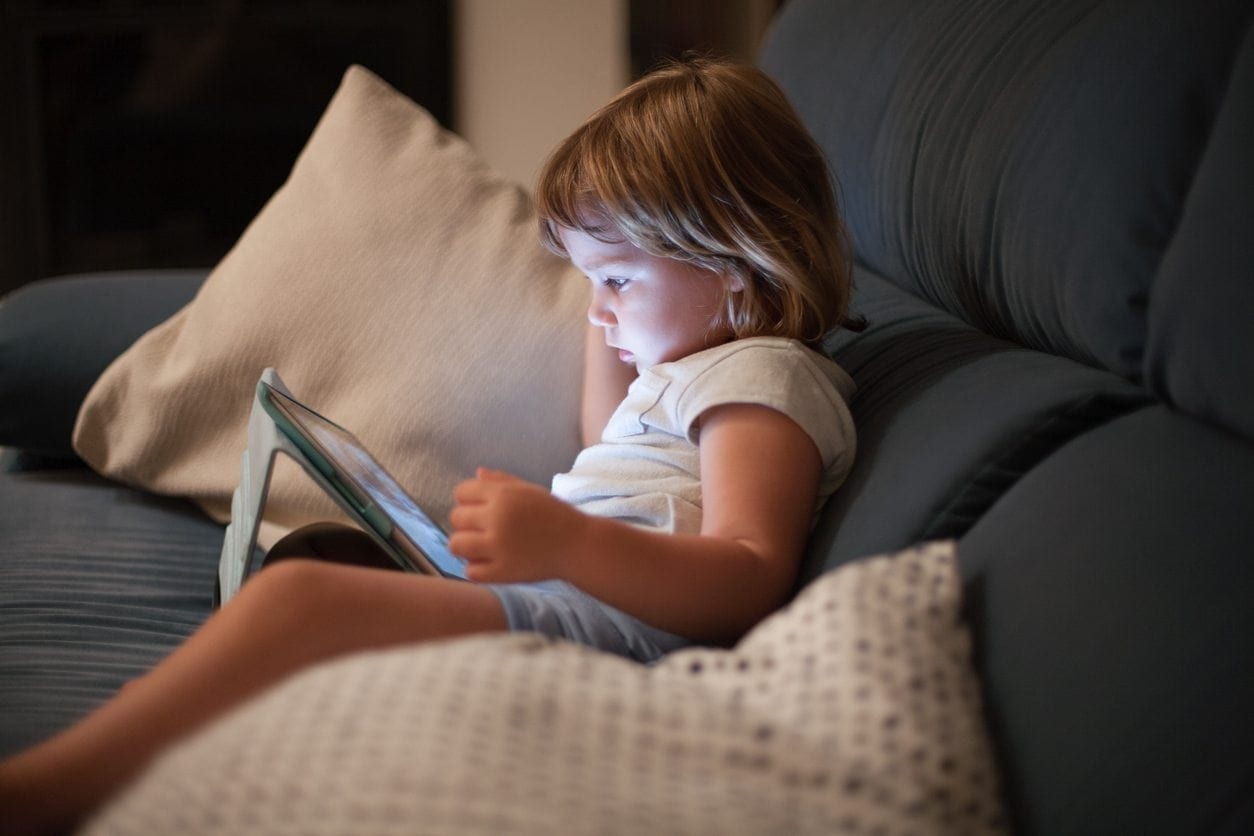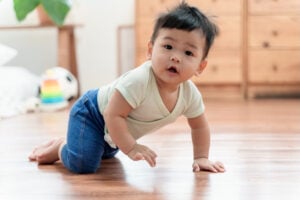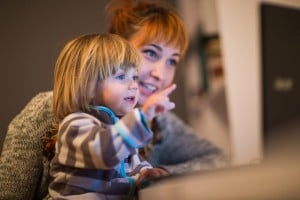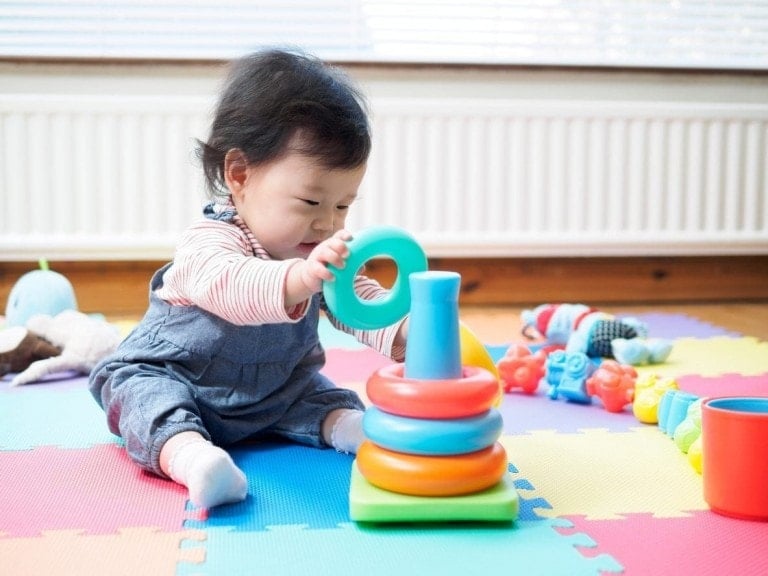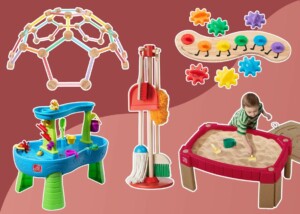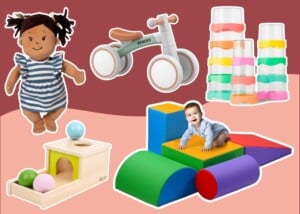“Is this an arcade or a baby nursery?” I often wonder this when I walk into a baby’s space. Brightly colored plastic that lights up, talks, sings, beeps, and makes all sorts of noises is taking over. Electronic toys are everywhere, but are they really necessary? More importantly, are electronic toys helping or harming our children’s development?
Enlightening Studies on Electronic Toy Use
Some very informative studies on electronic toys for children have been conducted, and the findings might surprise you. These studies compared electronic toys to more conventional toys, such as blocks, puzzles, and wooden tools. The results found that adults were less responsive to children when the kids were playing with electronic toys rather than other toys.1,2 The studies also showed fewer child vocalizations while children played with electronic toys versus traditional toys.1,2 This was up to 67 words less per minute, to be exact.2
Why is this significant? We know that early language development is critical to language and literacy skills later on.4 Language skills are one of the greatest predictors of success in school and life in general, including the development of children’s social skills.5
These electronic toys are marketed as “educational” and “developmental” and promise to help kids learn important skills and reach developmental milestones. However, research tells us that these toys do just the opposite. They impede learning and prevent positive language interactions between children and their parents and caregivers.1,2 Dr. Anna V. Sosa, who performed one of the studies, warns that playing with electronic toys results in a decrease in the quantity of language and the quality of language heard and spoken by children. She says that “to promote early language development, play with electronic toys should be discouraged.”1
Alternatives to Electronic Children’s Toys
Let’s be honest — we don’t really want those beeping, chirping, talking toys in our house anyway, do we? Have you ever loaded the toy box too full and had a toy begin talking from the depths of the box when you least expected it? Or have you ever stepped on a bleeping plastic cell phone in the middle of the night? It’s definitely not fun!
So, what are we to do when well-meaning Aunt Betty buys our children electronic toys that promise to help them learn their ABCs? Limit the time on these toys. Set a timer and allow only a few minutes per day, then counteract the use of these toys by reading your child a book. Ask questions while you read, engage them in the story, and ask them how the story makes them feel. Surround your child with toys that encourage language, creativity, and interactions, such as:
- Blocks
- Crayons and coloring books
- Puppets
- Dress-up costumes
- Dolls
- Trucks
- Play tools
- Play kitchens
- Puzzles and books
The Bottom Line . . .
Electronic toys are everywhere these days, but they may be hurting our children’s development more than they’re helping. Let’s try to replace the arcade with an environment that fosters language and communication from early on. It’s never too early! You can begin talking to your baby while they’re still in utero. Some studies show that babies recognize their mother’s voice just one day after birth.3 Take advantage of this by talking, reading, and singing to your baby from the day they’re born. Narrate everything you’re doing, tell stories, read the newspaper out loud, and read texts and emails out loud to help with your children’s development.
Babies create their vocabulary from their parent’s vocabulary.6 So, every word you say to them is forming the foundation for their language! Try not to limit these positive interactions with electronic noise.
